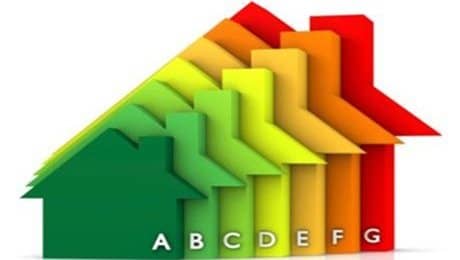An Energy Performance Certificate (EPC), is essentially a document that outlines how energy efficient your property is. Back in April 2018 the minimum energy efficiency standards (MEES) came into effect which said that all tenancy renewals, or newly rented property must have a minimum energy performance rating of an ‘E’. From 1st April 2020 the regulations extend to cover existing residential tenancies, which means that under the new legislations, rented properties with a rating of an F or a G cannot be rented out.
Previously you could apply for a no-cost exemption, which meant that if a landlord could not afford to do the works required, then they could apply to the PRS exemptions register, and not have to do the works for a 5-year period. This exemption will cease to operate on 31st March so if you currently have one in place, it will no longer excuse you. However, there is now a high-cost exemption that can be applied for. The high-cost exemption states that if the cheapest improvement would cost a landlord more than £3,500 (including VAT) to bring the EPC rating to an E, then they do not have to do the works. Landlords still must make all improvements below this cost, even if it would not change the rating – the likelihood is that one of the recommended cheaper improvements would bring an F, or G rating to an E. If a high-cost exemption is valid, then a landlord needs to apply to the PRS exemptions register, and it will be valid for a 5-year period.
There are some other exemptions that landlords may be eligible for. All need to be registered on the PRS exemptions register, with proof provided and will mostly last for a duration of 5 years.
· All improvements made exemption – as the name suggests, all possible improvements have been made and the property is still substandard.
· Consent exemption – Some improvements may legally require a third-party’s consent, therefore, if this consent cannot be granted, then this exemption can be applied for.
· Devaluation exemption – an independent RICS surveyor must have advised that all available improvement would lead to the market value of the property being reduced by more than 5%.
· New landlord exemption – there are some limited, stated circumstances where a person has suddenly become a landlord and it would be unreasonable for them to comply with the regulations immediately. In these instances, a 6-month exemption can be applied for.
· Wall insulation exemption – in certain situations cavity wall insulation, external wall insulation and internal wall insulation may have a negative impact on the structure or fabric of a property and special provisions can be made.
Official guidance also states that an EPC is not required for a listed building, or a property in a conservation area if the improvements will ‘unacceptably alter’ the property’s character or appearance. However, this definition is very broad, and each situation will be different. Therefore, it would be best practice to contact your local conservation officer for advice. Alternatively, if you are ever unsure if you can apply for an exemption contact an accredited EPC assessor and they should be able to advice you. The process in which EPC’s are calculated get updated every 2 years, so if your rating is currently just below an E, then it may be worth just getting a new EPC done, as the new calculations could just push you over the threshold.
As the world becomes more aware of and concerned about the effects of climate change, it is likely that the standards could rise again in another couple of years, at which point a ‘D’ or ‘C’ could become the minimum EPC rating. Therefore, it may be worth thinking further ahead and doing all you can now to raise the energy performance rating as high as possible, not only should this legally cover you for the next few years, but it should make your home more attractive to tenants who are increasingly becoming more environmentally conscious.








